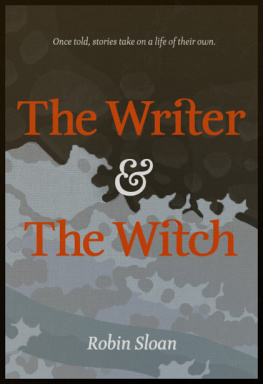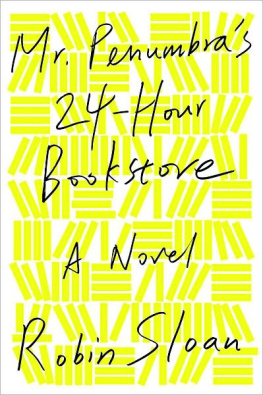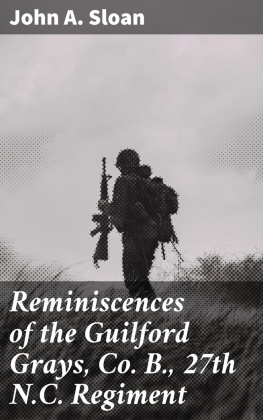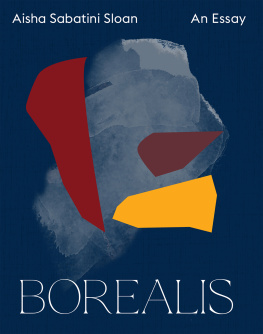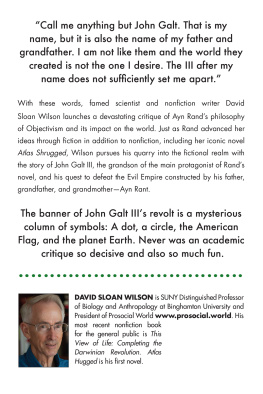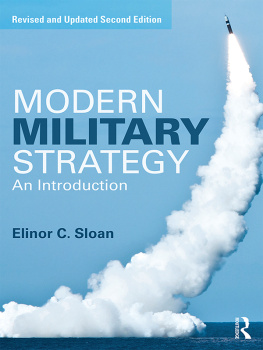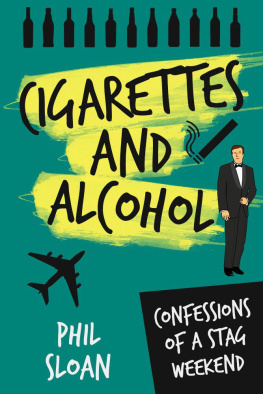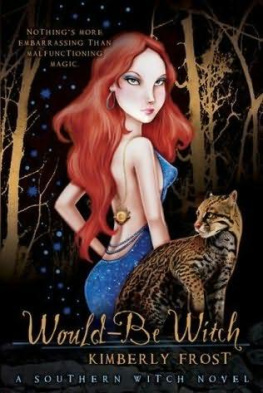Robin Sloan - The Writer & the Witch
Here you can read online Robin Sloan - The Writer & the Witch full text of the book (entire story) in english for free. Download pdf and epub, get meaning, cover and reviews about this ebook. genre: Detective and thriller. Description of the work, (preface) as well as reviews are available. Best literature library LitArk.com created for fans of good reading and offers a wide selection of genres:
Romance novel
Science fiction
Adventure
Detective
Science
History
Home and family
Prose
Art
Politics
Computer
Non-fiction
Religion
Business
Children
Humor
Choose a favorite category and find really read worthwhile books. Enjoy immersion in the world of imagination, feel the emotions of the characters or learn something new for yourself, make an fascinating discovery.
- Book:The Writer & the Witch
- Author:
- Genre:
- Rating:3 / 5
- Favourites:Add to favourites
- Your mark:
- 60
- 1
- 2
- 3
- 4
- 5
The Writer & the Witch: summary, description and annotation
We offer to read an annotation, description, summary or preface (depends on what the author of the book "The Writer & the Witch" wrote himself). If you haven't found the necessary information about the book — write in the comments, we will try to find it.
The Writer & the Witch — read online for free the complete book (whole text) full work
Below is the text of the book, divided by pages. System saving the place of the last page read, allows you to conveniently read the book "The Writer & the Witch" online for free, without having to search again every time where you left off. Put a bookmark, and you can go to the page where you finished reading at any time.
Font size:
Interval:
Bookmark:
ONCE , LONG AGO , A YOUNG MAN WAS WALKING down an old road onhis way to the New Capital. Ancient trees leaned in on both sides and castshadows that dappled his way. He was very ambitious. His father was afarmer, but he wanted to be a writer. He wanted to see everything and tryeverythingand he was in a hurry to get started.
(Thats how it starts. This is a story thatsbeen in my family for a long time. It gets told and retold in times oftransitiongraduations and weddings, births and deaths. Its not a story youtell around a table; its a story you tell quietly,one-on-one, maybe after everyone else has goneto sleep.)
So, the young writer came to a short stone bridgethat crossed a narrow river. There was an old woman sitting like a heap ofgray rags at the base of the bridge.
A coin for an oldwoman? she asked as he passed. He said nothing and kept walking. Just akind word, then? she called. Again, he said nothing, and picked uphis pace.
STOP !she saidher voice very different. He turned. The old woman was standing,pointing at him with a long, pale finger. In such a hurry? Then, in the nameof the rock and the ice, I curse you. For every step you take along your path,you will age one year. And then you will die.
The young writer rolled his eyes. This was notthe first time hed been cursed by a vagabond. He turned and continued on hisway across the bridge. But the air suddenly smelled like a thunderstorm. Andwith every step, he felt it: something inside of him was coarsening andthickening. His heart was hammering in his chest.
He reached the other side of the bridge and therehe fell to his knees. Reflected in the river, he saw not the face of a youngman, but one twenty years older.
He lifted his eyes. A jet-blackcrow screamed and spun above the trees. The old woman was gone.
# # #
THE YOUNG WRITER S FIRST INSTINCT was to run, to outrace the old womans words, toput this hallucination behind him.
But it was no hallucination.
He stared at the foreign face in the river. Hefelt sick and dizzy. He thought of all the things he wanted to do, all theplaces he wanted to see. It had all been laid out before him, like some magicalfeast. Twenty steps ago, life had seemed like an improbable blessing. Howcould something so small and stupid destroy it all? How could he have madesuch a simple mistake?
He cursed the old womanthe witchand he cursedhimself. He made little strangled sounds of pain and he wept.
He sat there. A step in any direction wassuicide.
The sun set and he curled into a fitful sleep.In the night, cold rain fell, and it soaked him through.
# # #
IN THE MORNING , he woke and ate some of the bread hed broughtfor the journey. There wasnt much.
He stretched his arms and legs, which ached morethan theyd ever ached before. The young writer was no longer young.
A woodcutter came down the road leading anox-cart. He slowed in front of the sprawled writer. Are you hurtor sick? he asked.
The writer began: A witchand then he paused.There was a choice to be made, and Im not sure that he realized just howimportant it was. Youll understand soon enough. Once told, stories take ona life of their own.
The writer glanced over to the river. The waterwas running fast and dark. He made his choice. He lied:
I am a pilgrim from faraway, he said, and I have come to spend my life in prayer and meditationhere, in this spot, where the river meets the road.
The woodcutter frowned and glanced around.Its not much of a spot, is it?
It is more importantthan you realize! said the writer. Why, there is a spirit in this river thatwould devour you and your ox, and having done that, it would roam the landuntil it found your village, and it would eat everyone there, too.
The woodcutter looked dubious.
But I have placed myselfhere as sacrifice to the spirit. And as long as I sit in this spot, withoutmoving, it will be sated. Lend me some branches to make a shelter, will you?
The woodcutters cart was piled high, and thestory was settling in. Yes, I suppose I can spare you some cuttings, hesaid. Ill even nail them together for you.
So he built the writer a simple, sloping roof.
Good luck to you, pilgrim,the woodcutter said when he started back down the road. And thank you.
# # #
THE DAYS THAT FOLLOWED were verydifficult.
The writer ate every scrap of edible ornearly-edible matter in the radius of his reach. He lured asquirrel into his lap and wrung its neck. Stretching down towards the river,he tried, and failed, to catch a fish with his bare hands. He choked down slimysnails.
He begged for food from passing travelers, butthere werent many of them, and most passed him as silently as hed passedthe witch.
But with patience, things improved.
When a fisherman came whistling across thebridge, first the writer begged for food. Then he thought better of it, andasked for a hook and a line.
He honed his begging. His survival depended onit, with so few people on the old road. The story of theriver-spirit grew more elaborate; now there were images of childrenwhisked away in the night, of whole towns suddenly flooded, and when the waterwashed away, no one was left.
Slowly, the story was spreading. One day, twomonks from a forest temple came out of the trees, eyed him up and down, andthensatisfiedthey bowed and left two baskets full of fresh vegetables anddried fruit. It was a feast.
# # #
WEEKS PASSED .The writers entire body had shrunken, his legs most of all. They were in dangerof withering. He began a regimen of stretching, squatting, and runningin place. Sometimes, as he was pumping his legs, he thought of leaning forward,of letting his feet dig in. He would race down the riverbank, grow old andfall down and die, and it would be over. But he couldnt. Even though its circumferencewas so tiny, he had a life, and he couldnt give it up.
He became adept not only at begging, but at trading,too. A cart would clatter to a stop, and he would offer a tiny treasureashell hed snagged from the river, or a decorative band woven from grass andreedsin exchange for some material to improve his shelter. Now he had tatteredcanvas flaps to keep the rain out and a tiny fire-pit, alongwith a small, dented iron cooking pan.
# # #
FINALLY , HE PAID A PASSING MERCHANT to take word to his father. His father, whohad warned him about his ambition. His father, who hadnt come in from thefields to say goodbye on the day the writer left home.
His father, who came runningrunning!down theroad days later.
His father, out of breath, carrying a hugebrown sack. It was full of seeds: tomato, cucumber, potato, and kale. Mint androsemary, too. His father, who sat down right there beside him and used hisfingers to rake furrows in the black earth. His father, who reminded him whathed learned on the farm, and explained the seeds hed brought, one by one, andshowed him how to grow a garden in that little disc of dirt.
His father, who took his face in his hands andsaid, You look just like me now. And then, smiling, Youre a farmerafter all!
His father, who slept there with him, under thestars. Who would not leave his side until the first harvest, such as it was,had come in. Who, even as he returned to the road, because his own harvest waslong overdue, was saying: Dont forget to rotate your crops, or youll wearout the soil. Treat it right, and its all you need.
His father.
# # #
IT WAS MORNING , months later.
The writer woke to find his garden ravaged, allof his food and small treasures stolen. There were footprints in the wetground. His heart sank. Almost a year of work, all gone. And it had been soeasy. Theyd taken everything while he slept, there where the river met theroad, out in the open, with no walls and no friends.
The writer stood up and brushed off his knees. Hecrouched in a sprinters stance, fingers stretched down to the ground. Heflexed his musclesand pulled up a tiny trap-door. It was hiscache: always secure, because he was always sitting on it. There wasnt muchin the shallow pit, but it was enough to begin again. He knelt and massagedthe soil of his garden, making it ready for new seeds.
Next pageFont size:
Interval:
Bookmark:
Similar books «The Writer & the Witch»
Look at similar books to The Writer & the Witch. We have selected literature similar in name and meaning in the hope of providing readers with more options to find new, interesting, not yet read works.
Discussion, reviews of the book The Writer & the Witch and just readers' own opinions. Leave your comments, write what you think about the work, its meaning or the main characters. Specify what exactly you liked and what you didn't like, and why you think so.

